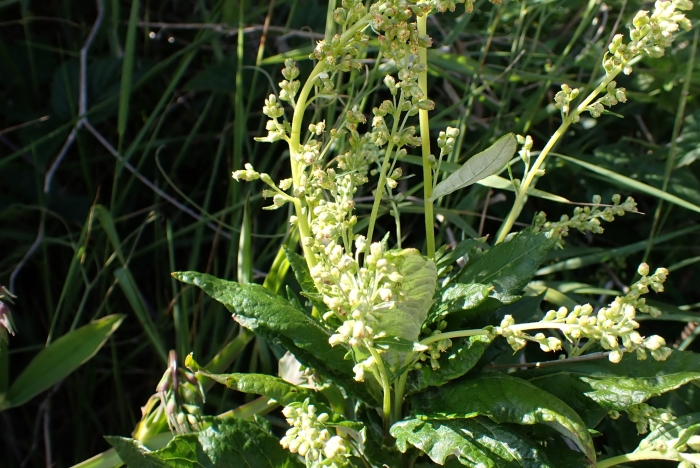Coastal Mugwort
(Artemisia suksdorfii)
Coastal Mugwort (Artemisia suksdorfii)
/
/

© Noah How
CC BY 4.0
Image By:
© Noah How
Recorded By:
Copyright:
CC BY 4.0
Copyright Notice:
Photo by: © Noah How | License Type: CC BY 4.0 | License URL: http://creativecommons.org/licenses/by/4.0/ | Uploader: nhow | Publisher: iNaturalist |























Estimated Native Range
Summary
Artemisia suksdorfii, commonly known as coastal mugwort or Suksdorf sagewort, is a rhizomatous perennial herb native to coastal bluffs, dunes, and prairies from British Columbia to northern California, with notable populations on Santa Catalina Island. It thrives in open, well-drained sandy or loamy soils, often in areas with coastal fog. This species typically reaches up to 6.6 feet tall and has a spreading habit due to its rhizomes. The leaves of Artemisia suksdorfii are narrow and lobed, presenting a green and hairless upper surface with a contrasting white and woolly texture underneath. From late summer to fall, it produces many clusters of small, inconspicuous yellow-green flowers that are not particularly showy but are attractive to a variety of pollinators.
Coastal mugwort is valued for its aromatic foliage and adaptability to coastal garden conditions. It is often used in native plant gardens, habitat restoration projects, and for erosion control due to its spreading nature. In cultivation, it requires minimal water once established, making it suitable for xeriscaping. It prefers full sun to part shade and can tolerate the high salt content found in coastal soils. While generally low-maintenance, gardeners should be aware that it can spread aggressively and may require management to keep it within bounds. There are no major disease problems associated with this plant, but it can become leggy if not pruned regularly.CC BY-SA 4.0
Coastal mugwort is valued for its aromatic foliage and adaptability to coastal garden conditions. It is often used in native plant gardens, habitat restoration projects, and for erosion control due to its spreading nature. In cultivation, it requires minimal water once established, making it suitable for xeriscaping. It prefers full sun to part shade and can tolerate the high salt content found in coastal soils. While generally low-maintenance, gardeners should be aware that it can spread aggressively and may require management to keep it within bounds. There are no major disease problems associated with this plant, but it can become leggy if not pruned regularly.CC BY-SA 4.0
Plant Description
- Plant Type: Herb
- Height: 1-3 feet
- Width: 2-3 feet
- Growth Rate: Moderate
- Flower Color: Yellow
- Flowering Season: Summer, Fall
- Leaf Retention: Evergreen
Growth Requirements
- Sun: Full Sun
- Water: Low
- Drainage: Fast, Medium
Common Uses
Drought Tolerant, Erosion Control, Low Maintenance
Natural Habitat
Native to coastal bluffs, dunes, and prairies
Other Names
Common Names: Suksdorf’s Sagebrush , Suksdorf Sagewort , Coastal Wormwood , Suksdorf’s Mugwort , Suksdorf’s Sagewort , Coastal Sagebrush , Suksdorf’s Wormwood
Scientific Names: Artemisia suksdorfii , Artemisia heterophylla , Artemisia vulgaris subsp. heterophylla , Artemisia vulgaris var. littoralis
GBIF Accepted Name: